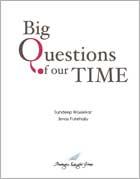Arab Revolution and the GCC
|
|
May, 2011
By Shivangi Muttoo
|
The Arab revolution contagion reached the shores of the Persian Gulf, when protests took place against authoritarian rule, rising inflation and high unemployment in Bahrain, Oman and Saudi Arabia. The Gulf Cooperation Council (GCC) countries did not experience the scale of protests seen in Egypt, Tunisia and Yemen. However in the future, if the large and young expatriate population demands citizenship rights and benefits, the GCC region may not be able to preserve the status quo that it has been able to maintain even in this volatile situation.
Of all the GCC states, Bahrain emerged as the most vulnerable to unrest. The country has a relatively diverse population, unlike other GCC states, and the majority community or Shiites have been demanding socio-economic rights and opportunities equal to those of the minority Sunnis, who are the ruling class in the country. Protest rallies were organized by the opposition parties, which have been active in Bahrain for over a decade. The GCC countries sent forces to Bahrain in order to contain the spread of public anger and make it difficult for Shia-dominated Iran to capitalize on the events in the region. The unrest did not spread immediately to other GCC countries because most of the Gulf Arab monarchies have not allowed the political space for opposition groups or dissent voices. Further, the oil-rich countries in the region have established a social security system for the miniscule local population. An ordinary Qatari citizen�€™s response to the Arab revolution was �€œif you have everything, who needs democracy.�€ The locals in majority of the GCC states are extremely loyal to the royal families. In addition, the GCC states have been gradually initiating limited political reforms. In 2007, Kuwait allowed women to contest and vote in the parliamentary and local elections. United Arab Emirates (UAE) will hold elections for the national assembly later this year.
The revolts in the wider Arab region are ironically having a positive impact on the Gulf Arab economy. Being the largest producer and exporter of oil and gas in the world, GCC region will benefit from higher crude oil prices. The Saudi American Bank Group, a leading financial institution in the region, has projected a higher growth rate for the GCC countries in 2011 compared to last year. This accelerated growth rate is the result of an increase in oil production due to crisis and instability in Libya. At present, GCC banking and other commercial activities are back to normal after minor disruption during protests.
On the political front, though, the Gulf Arab region especially Saudi Arabia seems to be losing some of its significant political clout in the Middle East. Efforts by Saudi Arabia failed to negotiate peace between Palestinian groups Fatah and Hamas in 2007. Last month, GCC states failed to broker peace in Yemen. On the other hand, Turkey and the new government in Egypt have successfully mediated a reconciliation agreement between the rival Palestinian groups. While Egypt is still struggling to recover from the unrest, Turkey has emerged as major player with tremendous influence in the region. Turkey is now encouraging reforms in Syria to resolve the ongoing crisis.
The Arab revolution could have another possible impact on the GCC. Having experienced the winds of dissent for the first time in the region, a large and young expatriate population could create a revolution-like situation in the future. According to GCC Secretariat, the expatriate population is likely to increase from 17 million in 2010 to 30 million by 2020. Therefore within 10 years the expatriate population could be more than 50 percent of total population of the region which is likely to be around 53 million by 2020. To shrink the growing expatriate population, GCC states are expected to introduce policies and programmes aimed at promoting its citizens vis-à-vis expatriates. The Saudi government has already developed a policy of �€˜Saudization�€™ which reserves jobs and benefits for the local citizens. In Qatar, healthcare and education is heavily subsidized for Qatari nationals. As a result, the young generation of working class expats, born and brought up in the GCC countries, could take inspiration from the current developments and demand citizenship rights, benefits and an end to the continued marginalization. This will have serious implications for the region and beyond.
The GCC states will not be able to handle large-scale protests as these nations have remained relatively stable over the decades and are equipped to manage a small population. A massive revolt in these countries will certainly propel intervention from foreign countries in the form of security forces to suppress dissent. The use of force would spark off a serious diplomatic row between GCC states and the governments of the source countries. While large-scale deportation of expatriates will likely have negative implications for the GCC economy, even the instability caused by protests will affect the economy particularly the tourism sector which contributes more than 10 percent to the GDP. In addition, the global economy will be severely affected by the loss of GCC oil exports. At present, around 40 percent of the world�€™s oil exports come from the Persian Gulf region.
At this watershed moment in the Arab world, it is the need of the hour for the GCC countries to usher in reforms and expand socioeconomic benefits to cover a wider population. The alternative is to continue facing the threat of a potential unrest.
Related Publications
-
.jpg&maxw=50)
Big Questions of Our time: The World Speaks, 2016
Download:Big Questions of Our time: The World Speaks _Full Report
-

-

Second Freedom South Asian Challenge 2005-2025, 2005
read more
Download:Second Freedom South Asian Challenge 2005-2025 Full Report
Related latest News
Related Conferences Reports
-

Global Challenges Conference, October 2016
Download:Global Challenges Conference Report
-

Conference on Responsibility to the Future: Business, Peace and Sustainability, June, 2008
Download:Global Security and Economy: Emerging Issues


